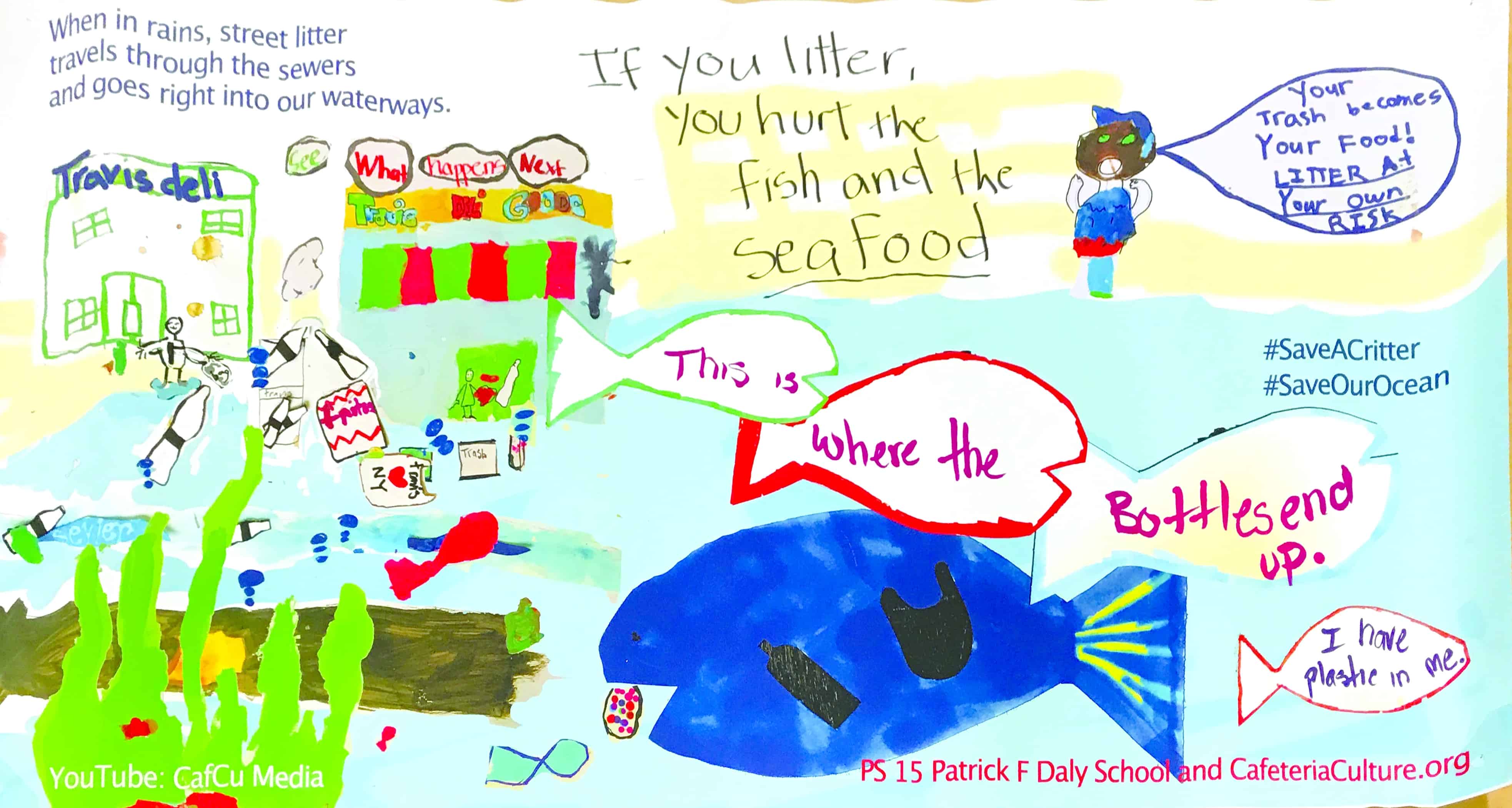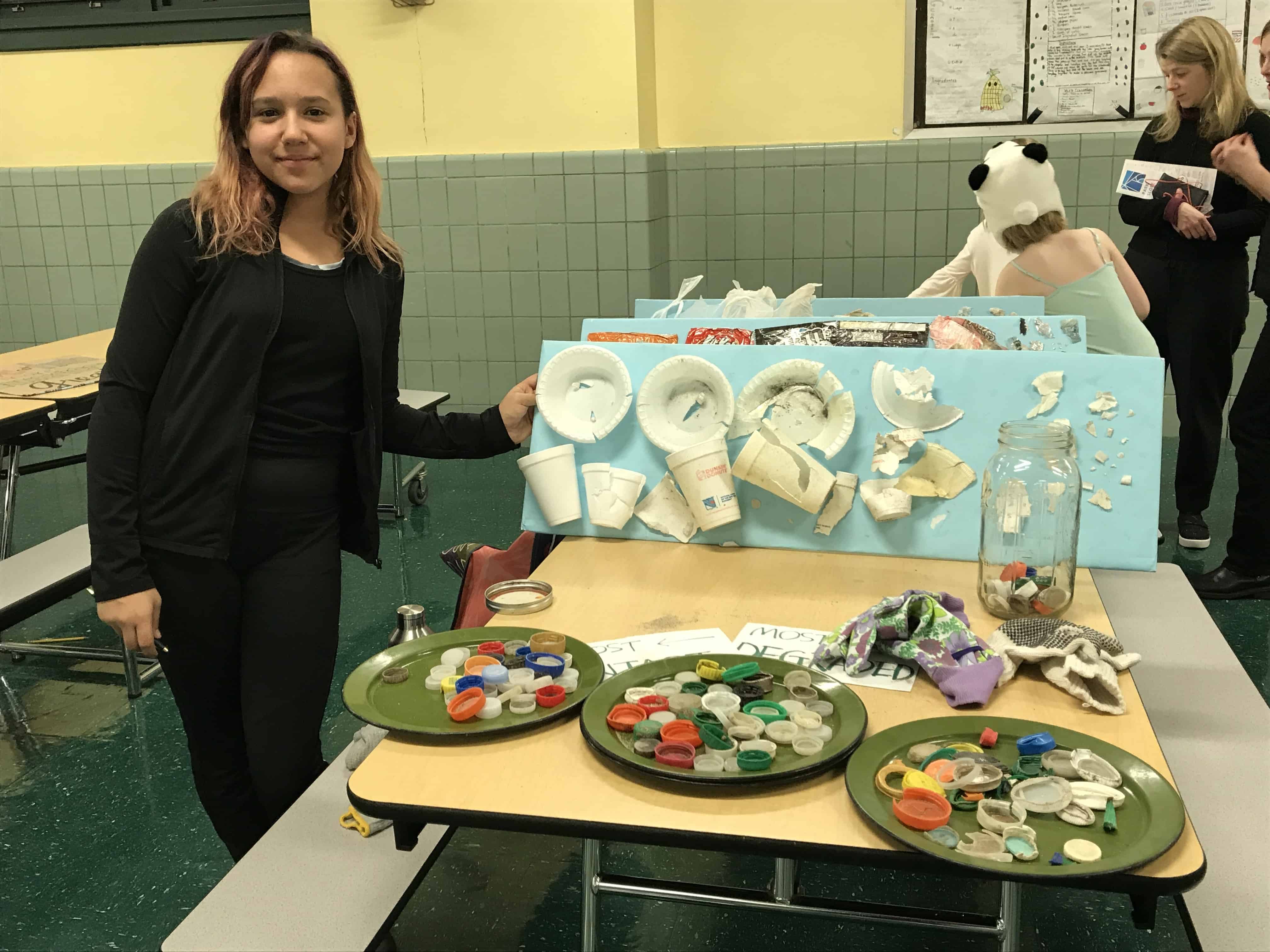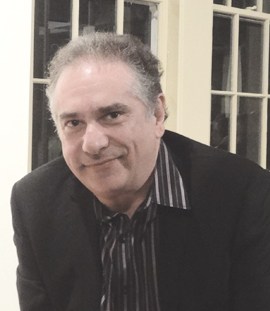P.S. 15 students were invited to celebrate the New Year with Mayor Bill de Blasio as he publicly announced the enactment of a Styrofoam ban. NYC manufacturers and stores can no longer sell or offer cups or plates made from the crunchy white synthetic material. There will be a six-month grace period from the ban’s Jan. 1 start date before fines are imposed.
The Red Hook school’s connection to the ban stems from their partnership with Cafeteria Culture, an environmental education and advocacy organization that works with children to achieve plastic-free, zero waste, and climate-smart schools and communities. Students are given a chance to have a voice in the environmental movement, thanks to learning and working in the classroom, cafeteria and community.
It initially started out as a campaign under the name ‘Styrofoam Out of Schools,’ a decade ago. The goal then was to eliminate styrofoam trays from all NYC public schools. Executive Director Debby Lee Cohen explained that about 30 schools then, mostly located in Park Slope and the Upper West Side, were raising money for compostable trays through their parent-teacher associations.
Cafeteria Culture began working with P.S. 15 three years ago when they were piloting a Plastic Free Waters program. The organization received a grant from EPA Region 2 to work in three schools and pilot educations specifically around marine plastic pollution issues.
“We wanted to develop something very hands-on that also took kids out into the community that included citizen science, but also [something that] gave students the opportunity to debate the issues, take their data and go to their policy makers and government agencies, and accelerate change on a local level,” Cohen explained.
One of the curriculum’s community-based projects was taking a class field trip to Jamaica Bay to compare street litter data and beach litter data. Fifth graders spoke with the National Park Service and learned about local combined sewer overflow issues. They also collected microplastics from dirt and water samples at Valentino Pier during another trip.
GETTING RECOGNITION FROM THE CITY
Cohen said those students also spoke with officials from the Department of Sanitation, recorded and broke up their data, and gave different reasons why there should be recycling bins in Red Hook. The students later organized a rally of 200 students from across NYC at City Hall on May 30, 2018. They shared their data, showed samples of how plastic degrades in the ocean, and spoke up for the original Styrofoam ban that was first passed in Dec. 2013 by the City Council.
“[The rally] helped our students learn, not only is their voice important, but also heard by elected officials,” said 5th grade teacher Ieman Elzoghby who helped spearhead organizing the event. “In addition to the clear environmental role these students played, I’m also hoping they learned a little about how our government works.”

A judge upheld the ban a week after the rally on World Oceans Day (June 8).
“It was amazing to see their efforts pay off,” said 5th grade teacher Sara Popow, whose class worked with Cafeteria Culture last year. “Cafeteria Culture did an amazing job guiding our students to becoming advocates for causes they believe in.”
P.S. 15 alumna Maggie Dalencour, who is now a 6th grader at Brooklyn Urban Garden Charter School (BUGS), started working with Cafeteria Culture three years ago when she was a 3rd grader. She shared her experiences and thoughts with other students and parents at Citizen Squirrel’s Civic Engagement Workshop for Families with Young Children (held on Jan. 23, 2019 at M.S. 51).
“I’ve learned a lot of things, not just the cycle of Styrofoam and plastics,” Dalencour told the RHSR. “I’ve also learned how to communicate with my peers better; I was kind of quiet, but it gave me a way to open up.”
“My school is very big on ‘reduce, reuse, recycle’ and we talked a lot about the Styrofoam ban in classes, so I think a lot of Cafeteria Culture carried on to my new school,” Dalencour said.
FUTURE PLANS
Cohen said one of Cafeteria Culture’s goals is to share free piloted curriculum, so “teachers can easily use it and help drive change forward from the ground up in schools and get students interested.” They also hope to continue building upon what was done at P.S. 15 with middle schools in Red Hook.
And just because P.S. 15 made big strides doesn’t mean their time with Cafeteria Culture is over – the organization’s currently working with the 5th grade. They’re doing a small pilot program that’s about plate waste and looks at the connection between the amount of food waste in school cafeteria and plastic packaging.
Cafeteria Culture is also producing a feature-length documentary called “Breaking It Down – Brooklyn Kids Take on Microplastic Pollution,” which details P.S. 15 students’ two-year-long journey in the Plastic Free Waters program. Cohen said the intention is to share this movie with companion curriculum for teachers all over the country.
“We’re ready to build a youth movement/campaign for plastic-free waters because we think what they did, and what they did with the support of their teachers and school, can spark a movement nationally,” she said.
Cohen explained that “Breaking It Down” will be shared for free as a YouTube and Vimeo series in the future. The movie will be broken down into five chapters – with each chapter having its own set curriculum. “Breaking It Down” is set to premiere in April.
Author
-

George Fiala has worked in radio, newspapers and direct marketing his whole life, except for when he was a vendor at Shea Stadium, pizza and cheesesteak maker in Lancaster, PA, and an occasional comic book dealer. He studied English and drinking in college, international relations at the New School, and in his spare time plays drums and fixes pinball machines.
View all posts
George Fiala has worked in radio, newspapers and direct marketing his whole life, except for when he was a vendor at Shea Stadium, pizza and cheesesteak maker in Lancaster, PA, and an occasional comic book dealer. He studied English and drinking in college, international relations at the New School, and in his spare time plays drums and fixes pinball machines.










